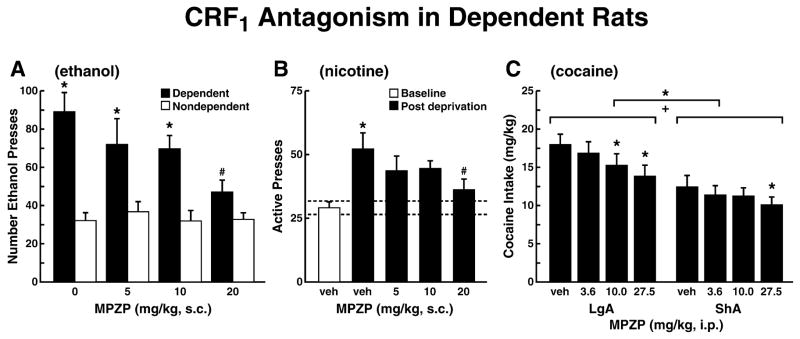Figure 3. Effect of CRF1 Receptor Antagonist on Alcohol and Nicotine Self-Administration in Dependent Rats.
(A) The effect of small-molecule CRF1 receptor antagonist MPZP on operant self-administration of alcohol (g/kg) in dependent and nondependent rats. Testing was conducted when dependent animals were in acute withdrawal (6–8 hr after removal from vapors). Dependent animals self-administered significantly more alcohol than nondependent animals. MPZP significantly reduced alcohol self-administration only in dependent animals. MPZP had no effect on alcohol self-administration in nondependent animals. *p < 0.05 compared with nondependent controls. #p < 0.05 compared with vehicle (0 mg/kg MPZP). Data are shown as mean ± SEM (n = 8 per vapor treatment group). Taken with permission from Richardson et al. (2008).
(B) The effect of small-molecule CRF1 receptor antagonist MPZP on nicotine self-administration during the active period in rats given extended access to nicotine (*p < 0.05 versus baseline, #p < 0.05 versus post abstinence vehicle treatment, n = 8). Data are shown as mean ± SEM. Taken with permission from George et al. (2007).
(C) The effect of small-molecule CRF1 receptor antagonist MPZP on cocaine intake in short-access (ShA) and long-access (LgA) rats. MPZP dose-dependently reduced cocaine intake, achieving a maximal reduction of ~20%, with a greater effect in LgA compared to ShA rats. A main effect for Access (*p < 0.05), a main effect for MPZP dose (p < 0.001), and a significant access × MPZP dose interaction (+p < 0.05) were observed. Data are expressed as mean (+SEM) cocaine intake (mg/kg). Taken with permission from Specio et al. (2008).

